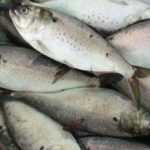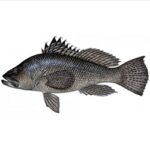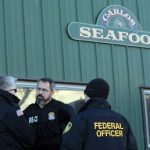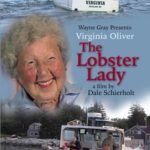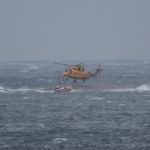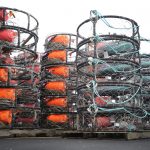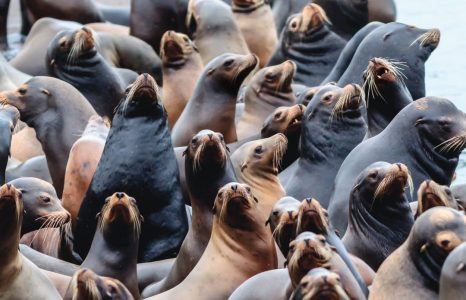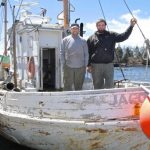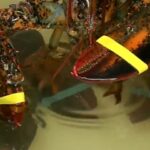Tag Archives: seal predation
3Ps Stock Assessment Update Highlights Need to Ban Offshore Draggers and Address Seal Predation
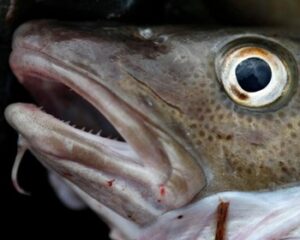 11/5/2024 – Today’s technical briefing by the Department of Fisheries and Oceans (DFO) on the 3Ps cod stock assessment delivered news that the south coast species has not experienced much growth in recent years, leaving harvesters concerned for the stock’s future and the impact the offshore dragger fishery is having on the stock’s recovery. FFAW is once again reiterating the need to ban factory draggers from all cod species in Newfoundland and Labrador, citing the continued and lasting damaged caused by draggers fishing on pre-spawning aggregations. more, >>CLICK TO READ<< 10:57
11/5/2024 – Today’s technical briefing by the Department of Fisheries and Oceans (DFO) on the 3Ps cod stock assessment delivered news that the south coast species has not experienced much growth in recent years, leaving harvesters concerned for the stock’s future and the impact the offshore dragger fishery is having on the stock’s recovery. FFAW is once again reiterating the need to ban factory draggers from all cod species in Newfoundland and Labrador, citing the continued and lasting damaged caused by draggers fishing on pre-spawning aggregations. more, >>CLICK TO READ<< 10:57
Seal oil is the best source of omega-3 and other facts about Canada’s misunderstood seal harvest
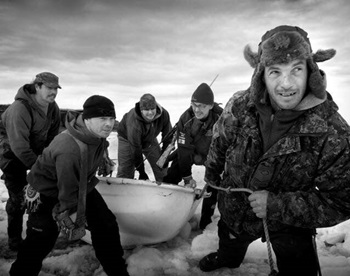 Contrary to narratives spun by anti-sealing groups for decades, this practice is a testament to resilience and a crucial pillar of sustainability and economic survival. Despite numerous fear factors, some substantiated and others frivolous, coastal communities still rely on and support the responsible harvest of seals. For coastal Canadians, the ocean has been and continues to be a source of food, economic activity, recreation, and livelihood. Let’s follow the facts trail: The seal harvest uses techniques designed by a panel of international expert veterinarians. Seals eat 53 times more fish yearly than the entire Eastern Canadian fishing fleet catches. Government scientists have stated that seal predation is preventing the rebuilding of five fish species listed under the Species at Risk Act. >> click to read <<14:52
Contrary to narratives spun by anti-sealing groups for decades, this practice is a testament to resilience and a crucial pillar of sustainability and economic survival. Despite numerous fear factors, some substantiated and others frivolous, coastal communities still rely on and support the responsible harvest of seals. For coastal Canadians, the ocean has been and continues to be a source of food, economic activity, recreation, and livelihood. Let’s follow the facts trail: The seal harvest uses techniques designed by a panel of international expert veterinarians. Seals eat 53 times more fish yearly than the entire Eastern Canadian fishing fleet catches. Government scientists have stated that seal predation is preventing the rebuilding of five fish species listed under the Species at Risk Act. >> click to read <<14:52
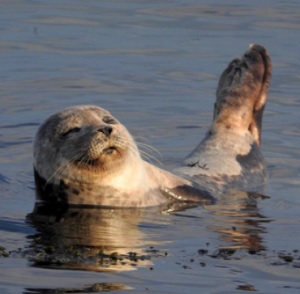
Ireland: Seals depleting salmon stocks?
The potentially detrimental effect seals are having on salmon stocks has been raised at Donegal County Council’s Fisheries committee. Cllr McDermott said the seal population had quadrupled and he did not think any investigations had been carried out into the amount of salmon being eaten by seals. He added: “The effect on the salmon stock caused by seals is not being taken into consideration at all. The fishermen have grave concerns. It seems to be okay for the seals to deplete salmon stocks but it is not okay for the fisherman who is trying to make a living.” >click to read< 16:30
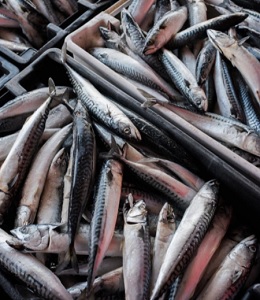
Rising fuel, bait prices could eat into profit margins
Lobster fishers have had to contend with the rising costs of doing business for years, but this season presents a set of circumstances perhaps without compare. Fuel prices are higher than they’ve ever been on PEI and that will have a direct impact on fishers, especially the ones who sail further out from shore. Throw in rising bait prices driven by quotas and feeding predators, and insurance costs, and it could take a sizable big bite out of profit margins. “It’s going to be different from last year for sure. The cost of everything is going up,” said Naufrage lobster fisherman Lucas Lesperance. He hopes those pressures will create a strong price throughout the season. Mr Lesperance said seals are becoming more of a nuisance than ever, chowing down on bait species like herring and mackerel. A seal hunt would certainly help, he said. >click to read< 10:07
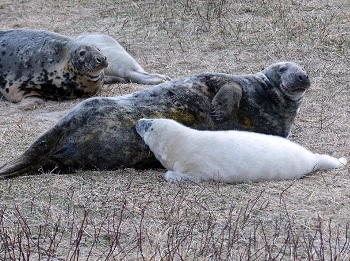
Non-Fishing Mortality Remains Key Concern in South Coast Cod Update
Today’s 3Ps cod stock assessment update delivered some good news for harvesters on the province’s south coast, but significant concerns regarding natural mortality and the untold impact of seal predation remain. “Fish harvesters on the south coast are looking for better science on this cod stock,” says FFAW-Unifor President Keith Sullivan. “Natural mortality has been driving the stock for many years. We already know that seals are eating a large amount of cod, but DFO needs their scientists to prove it first. Yet several years into this and we’ve made very little headway,” >click to read< 16:39
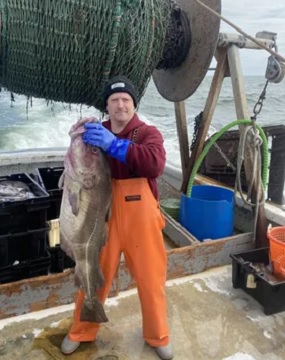
Doomed to Extinction? Where have all the codfish in the Gulf of Maine gone?!!
The commercial fishermen have all been given a personal quota for cod. If they reach their quota, they need to purchase or lease more quota from someone who has extra. The price to “lease” these fish in order to catch them can be exorbitant. Cod has become a commodity on the market being bought or hoarded by non-fishermen to make money off the backs of the active fishermen,,, And then there are the seals. Yes, harbor seals, gray seals and harp seals. Seals would not normally be feeding on large amounts of cod, but we have protected the seal population for decades without regard to the rest of the environment. The result is unmistakably a huge explosion in the seal population within the Gulf of Maine. So, are the cod doomed to extinction? >click to read< 07:50
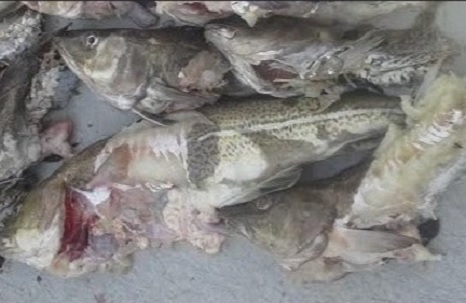
“DFO operates in denial of Reality”- Scientist says seal predation not having a significant impact on spawning cod stocks
Instead, Karen Dwyer, weighing in on the contentious debate over the health of cod stocks, said Thursday that environmental factors and a limited supply of the cod’s primary food source — capelin — are more to blame.,, Trinity Bay fisherman Keith Smith said DFO continues to downplay the impact of seal predation on cod. “It’s like DFO operate in denial of reality,” Smith said. “Fishing mortality is at an all-time low while natural mortality, likely led by the growing seal population that consumes vast amounts of both capelin and cod, remains high,”,,, >click to read< 11:04

John Gillett: Fishery mismanaged while people go hungry
Canada is doing the world a big injustice by mismanaging our Newfoundland and Labrador fisheries. If our fisheries were managed right, we could supply a million tonnes of fish protein to the world and still have enough for our own country. Canada refusing to address the predation of millions of tonnes of fish a year by 10 million seals is criminal to me. Canada, under the UN food security program, has an obligation to share food with the world, not let it be wasted by not controlling the seals that are destroying what fish harvesters harvest and causing an ecological marine disaster. >click to read< 09:10
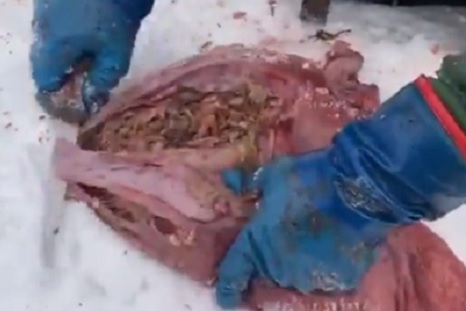
A Magnitude of Evidence: Seal Processing Company Accusing DFO of ‘Hiding Evidence’ of Seal Predation
A group of sealers are accusing DFO of “hiding evidence” of seal predation on crab stocks and they intend to take the matter further if need be.,, This year’s crab stock assessment showed some improvement in certain areas, but fishing activity is still only a fraction of what it was 15 or 20 years ago and there is little information on the impact of natural predation on crab stock recovery.,,, Rideout claims they’re keeping the evidence to launch a possible court case against DFO—if necessary. >click to read and, listen to the audio< of Brad Rideout! We’re not just talking crab, and he describes it so even DFO can understand it! 13:36
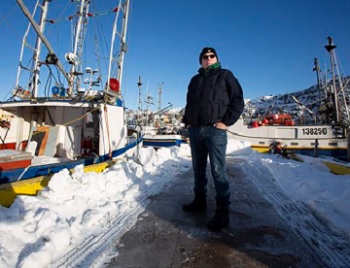
Is politics getting in the way of rebuilding a sustainable fishery in Newfoundland?
The sentinel program, created after the cod moratorium in 1992 to monitor fish populations, is run exclusively by the Fish Food & Allied Workers, the powerful union that represents around 15,000 fishermen, fish plant employees and other workers in the province. DFO relies on data from the sentinel fishery to help assess fish stocks, and has paid the union millions to run the program. “The FFAW and the DFO are cheating the fishermen out of a resource that belongs to the people of Newfoundland,” said Jason Bateman, a former enforcement officer with DFO. Ryan Cleary, a former member of Parliament for St. John’s-Mount Pearl and an outspoken critic of the FFAW, said the union has found a way to prosper since the collapse of cod by integrating itself into fisheries management, acting almost as a regulator, while becoming a vocal industry voice that contradicts science. >click to read< 17:55
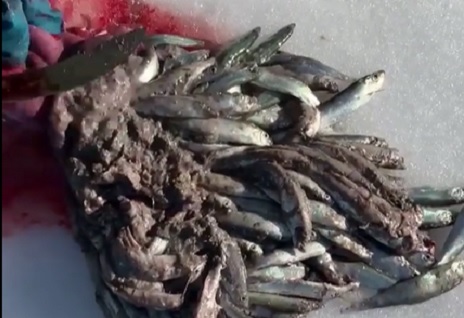
Wow. Just, Wow. A belly full of fish ramps up seal debate
If you have a weak stomach, the video might be difficult to watch. But for fish harvesters in Newfoundland and Labrador, the images of a seal stomach being cut open to reveal a gut full of small herring and Arctic cod is proof enough that seals are a factor in the slow recovery of cod stocks. Last week Dion Weir and a buddy hunted a few seals for personal use in Hall’s Bay, off the Baie Verte Peninsula. They were filled with small fish. “Up in these bays now they’re eating herring and Arctic cod,” Weir said. “Wherever the cod is, the seals are there.” Multiply that by 7.6 million seals,,, >click to read< 15:42
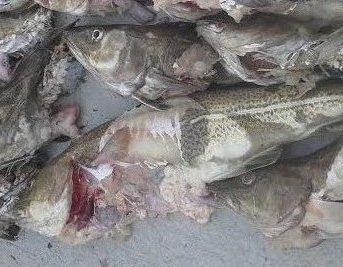
Fisheries Advocate Calling for Independent Task Force to Help Rebuild Industry
Gus Etchegary’s involvement in the Newfoundland fishing industry predates Confederation, he’s now with the Fishery Community Alliance.,, Etchegary indicates more needs to be done nearly three decades since the commercial cod moratorium. Etchegary says an independent assessment of stocks needs to be carried out and consideration has to be given to seal predation, threats to the caplin stock and joint management. >click to read< 09:12

Opinion: If EDF wants to do something about improving cod stocks it needs to address the other factors
The fact is if the Environmental Defense Fund wants to improve cod stock it needs a more holistic approach to cod conservation, taking into account all the factors affecting cod. Not approaching the situation in this manner is just plain wrong. There are a number of other factors that the EDF needs to address if they want to bring back cod stocks. The first is the gigantic seal population that has a dramatic impact on fish populations, including cod. EDF needs to confront the marine mammal conservation community if it wants to conserve cod. more, by Fisherman Theodore Ligenza >click to read< 07:51
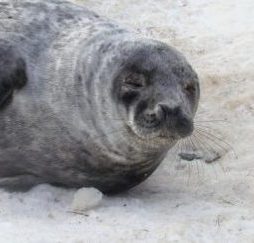
The Honourable Bernadette Jordan names members of the Atlantic Seal Science Task Team
The Atlantic Seal Science Task Team was established to gather fishing industry and stakeholder input on the Department’s current science activities on Atlantic seals, relating to seal predation on commercial fish stocks. The Task Team will serve for a maximum of one year and will provide: input on the priorities of the Department’s Atlantic seal science program, input on how to increase the involvement of the fishing industry in seal science projects, advice on how the Department could better communicate its scientific findings to the fishing industry and other stakeholders >click to read< 12:25
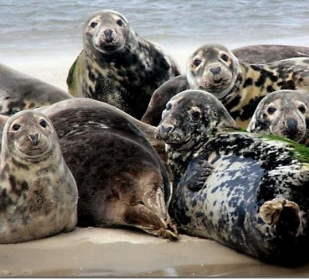
LETTER: Standing up for our fishery
A famous Newfoundland and Labrador politician was once asked about the impact of seals on the fish stocks off our coast. He replied using the wit many good Newfoundland orators are known for and said something to the effect of well, they don’t eat Kentucky Fried Chicken. He was absolutely right then and the same holds true today as we see thousands of tons of fish consumed daily off our shores by these cute-looking mammals with voracious appetites for cod, crab and other lucrative species; the same fish our harvesters and processors depend on,,, by Paul Lane >click to read< 07:21

Following seal predation report, FFAW calls for government action
FFAW-Unifor accuses the Department of Fisheries and Oceans of remaining “complacent while evidence mounts that an overpopulation of seals is having a serious impact on important fish species.” A study conducted by DFO shows that a lack of cod recovery in the southern Gulf of St. Lawrence may be caused by predation by grey seals, and could account for up to 50 per cent of natural cod mortality. This is limiting the cod stock’s recovery, DFO said. An assessment predicts a 32 per cent drop in cod numbers over the next four years. >click to read< 10:03
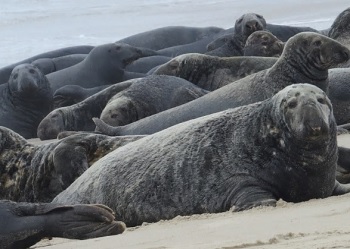
Seals are overfishing at unsustainable rates! Gulf of St. Lawrence cod extinction ‘highly probable,’
“At the current abundance of grey seals in this ecosystem, recovery of this cod population does not appear to be possible, and its extinction is highly probable,” the report says. DFO fish biologist Doug Swain said the cod population is now about five per cent of levels in the 1980s, and the downward spiral is accelerating despite a moratorium on a directed cod fishery in the Gulf since 2009. The problem is an “extremely high” and “unsustainable” death rate for cod five years or older. >click to read< 11:29
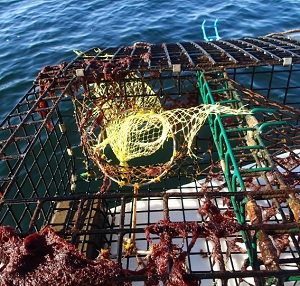
Open Season: It might be time to ‘seal’ a deal to help fishermen
According to local lobstermen, the fishing in Buzzards Bay suffers a lull in the heat of late summer but usually picks up again around Thanksgiving when the water cools. But that’s not the case this year, according to my own experience. I have a recreational lobster license, which allows me to run up to ten pots with a stipulation that the lobsters can’t be sold. I run those ten pots in the Bay from spring through December and fished them as late as mid-January last year, but I hauled them for the season on Tuesday. It stopped being fun. For November and early December, my harvest was less than half of what I caught last year during the same period. Some say that the increase in ocean temperatures, due to climate change, is chasing the lobsters North to colder waters but it’s my opinion that the populations of lobsters, like any other wildlife species, are cyclical with highs and lows. Wildlife numbers are never stagnant. >click to read<18:33

































